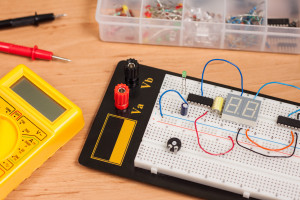How to get your FCC GROL License – General Radio Telephone Operator’s License is a question we get asked frequently from our technical training clients. The Federal Communications Commission (FCC) administers licenses for maritime, aviation and international fixed public radio communication stations. The FCC mandates that individuals hold a General Radiotelephone Operators License in order to perform certain specified duties at these stations, such as operating, adjusting, maintaining and internally repairing the transmitter equipment. Many municipalities now require engineers who design and test Emergency Responder Radio Communication Systems (ERRCS) to hold the FCC General Radio Telephone Operator’s License. A GROL also conveys all the operating authority of the Marine Radio Operators Permit (MP). Since many jobs in the shipping or aviation fields require the license, it can be useful to obtain. The FCC offers several different types of licenses, so it is necessary to clearly understand the specific exams you need to pass in order to receive your General Radiotelephone Operators license. Additionally, you should consider whether you want to add a “Radar Endorsement” to your license. The following describes the FCC GROL licensing process and how to get your GROL:
Understand who needs the FCC license: The General Radiotelephone Operators (PG) or GROL license is required for jobs such as operating, maintaining and repairing radio equipment on a vessel or aircraft. For only operating “lower power” marine radios, often a Marine Operators Permit (MP) is all that is required. All of our clients are technicians or engineers that want to achieve the full GROL (PG) status. An (MP) Marine Radio Operators Permit is required to operate a ships radio if:
- The vessel carries more than six passengers for hire, or
- The radio operates on medium or high frequencies (300 KHz to 30 MHz), or
- The ship sails to foreign ports, or >20m sailing on the Great Lakes, or
- The ship is larger than 300 gross tons
- And certain other land and air radio communication situations
Many municipalities now also require engineers who design and test Emergency Responder Radio Communication Systems (ERRCS) to hold the FCC General Radio Telephone Operator’s License. Thus engineers designing and testing these ERRCS in-building systems are often required to hold this FCC license.
Understand who qualifies for the FCC license: In addition to passing the licensing exam, individuals need to be able to receive and send spoken messages in English. Additionally, they must be a legal resident of the United States or legally eligible for employment in the country. Once the license is obtained, it is good for life and does not need to be renewed.
Understand the exam specifics: To obtain a PG or GROL license, you must first pass a written exam comprising two elements:
- Element 1 of the exam includes questions about basic radio law and operating practice for maritime radio operators. The exam comprises 24 questions, and passing requires answering at least 18 of them correctly. Element 1 is basically the Marine Operators Permit (MP) exam.
- Element 3 of the written exam contains 100 questions, of which at least 75 must be answered correctly. This exam focuses on general radiotelephone information, such as the electronic fundamentals of the equipment and techniques for adjusting, repairing and maintaining it. Some of the categories for this exam include operating procedures, basic electronics, RF circuits, radio wave propagation, electrical principles, electronic components, practical circuits, signals and emissions, and antennas and feed lines. Element 3 is a challenging exam that covers a broad base of technical subjects, application and theory. A GROL license requires passing element 1 and 3.
- If you have decided to also obtain the radar endorsement for working on marine vessels, you will have to pass Element 8, Ship Radar Techniques. Element 8 contains 50 questions, of which 38 must be answered correctly in order to pass. The questions focus on theory and practice of using radar for marine navigation purposes.
Prepare for and pass the FCC exam: While you could download the FCC question pools and try to memorize answers, this method often leads to exam failure and certainly does not actually teach you to understand the material and be a better technician or engineer. The question pool for Element 3 is over 600 questions. If your organization wants you to actually learn the material, you should seek training by an experienced instructor that truly understand RF and electronics. We offer a 4.5 day course that includes hands-on labs and is taught by an electrical engineer with RF design experience. You can learn more about this course on our FCC GROL training page.
Locate an FCC Exam Proctor: While the FCC administers and awards the PG and other licenses, it does not administer the exams required to obtain them. The FCC GROL General Radio Operators License test can only be proctored by an FCC approved COLEM. The Marine Operators Permit (MP) requires passing element 1 and the General Radio Operators License (PG) requires passing element 1 and element 3. The Radar endorsement is element 8. Once you are ready to take your exam Singer Executive Development can proctor the exam tests for you. This way the same trusted instructor can administer the final exam for your GROL. There are also public training and exam events, such as this one: FCC GROL Training & Exam. Once you pass the exam, we can file your application for you and process all the paper work. You will usually receive your license in about 2 to 8 weeks from the time you pass the exam and the application is filed.
Please contact Singer Executive Development if you have any questions on taking the FCC GROL General Radio Operators License exam, or want to learn more about our GROL training courses and classes.




